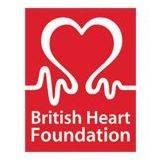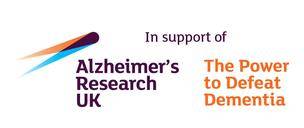Editor - Paul Denny
Gene Annotation and Ontology Development
Recently, we have been finishing our focus on Wnt signalling and autophagy; in particular, comparing our protein annotations with those in two complementary resources, Reactome and PD-map. Rebecca was focused on the role of Wnt-regulated dopaminergic neuron development. Using PD-map she was able to fill in annotation gaps and link GO terms to the PD-map resource. In conversations with Reactome, she was able to create more than 10 Reactome:GO mappings, which will lead to increased semi-automated generation of GO terms from Reactome pathways.
The main approach that I have taken has been to test our annotation coverage by comparing proteins associated with the GO terms 'autophagy' and 'macroautophagy' with the PD-map compartment for autophagy and the Reactome pathway for macroautophagy. Where I found discrepancies, I looked for publications describing experimental evidence that would support GO annotation of these proteins, this led to the submission of 60 additional annotations.
Rebecca and Ruth have been providing annotation advice to our collaborators at the Amsterdam Free University (VU), with Rebecca visiting them recently for face-to-face discussions. Their focus on GO annotation of synapse-associated proteins is very relevant to our work.
Based on feedback from members of our scientific advisory board, colleagues at the Institute of Neurology and discussions with Prof. John Hardy, we are now prioritising the annotation of genes with genetic evidence of association with Parkinson's, rather than Parkinson's relevant processes. We have started with those that were poorly annotated and have already doubled the number of manual annotations associated with 7 proteins (adding 70 annotations). For example we have captured the role of VPS13C in parkin-mediated mitophagy in response to mitochondrial depolarization and the roles of both SYNJ1 and INPP5F in synaptic vesicle transport. Our total annotation count so far (March 12th, 2016), based on the EBI statistics is: 5877 GO terms associated with 1364 proteins, including 3807 annotations of 863 human proteins. Furthermore, a total of 333 GO terms have been created by the GOC editors, at our request.
Community Feedback
We're keen to receive suggestions on where you consider we should be prioritising our annotation efforts - please get in touch with priority topics, papers or proteins. Our current funding lapses in December 2016, so we would also appreciate feedback on the accuracy and completeness of annotations. Recommendations of large-scale transcriptomic or proteomic datasets relevant to Parkinson's, which we could use to test our revised annotations, would be useful.
Meetings Attended
Rebecca organised a highly productive (virtual) meeting with the curators and programmers designing and building the PD-map, from the Luxembourg Centre for Systems Biomedicine. In the near future, it will be possible to view our GO-annotated proteins overlaid on the context of the PD-map; check out our website or Twitter account for updates.
Future Meetings
In April Ruth will present our collaborative autophagy effort on a poster, at Biocuration 2016 and Rebecca will attend the Gretschen Amphlet Parkinson's memorial lecture, 'Can stem cells deliver on their promise for Parkinson's?', given by Prof. Roger Barker. Paul will be going to the 20th International Congress of the Parkinson's Disease and Movement Disorders Society in June, if you are going please look out for his poster.
Publications
Using the Gene Ontology to Annotate Key Players in Parkinson's Disease. Foulger RE, Denny P, Hardy J, Martin MJ, Sawford T, Lovering RC. Neuroinformatics. 2016 Jan 29. PMID:26825309. This paper can also be reached from the GO Consortium Facebook page and on Twitter.
Register to attend our ninth 2-day Bioinformatics and GO Annotation Workshop on 14 - 15 July 2016.
Please contact us to receive this quarterly Newsletter by email
 Close
Close








